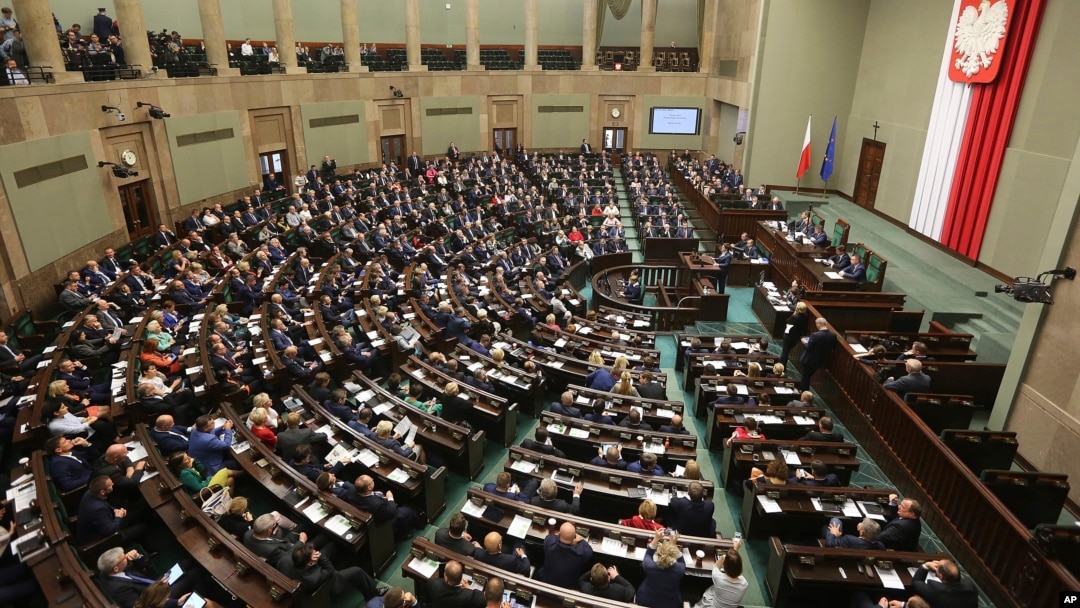Poland's conservative ruling party has pushed a bill through the lower house of parliament that would give lawmakers a dominant role in appointing judges, a move that opposition parties and rights groups said would make jurists subject to political influence.
The proposed law would change the makeup of the National Judiciary Council.
At present, the council's members are appointed by sitting judges, and it is considered nonpartisan. The pending bill would give the legislature the power to select 15 of the 25 members, and thus control the process of selecting, reviewing and nominating all new jurists.
The lower house, or Sejm, which has 460 members, voted 227-5 in favor of the measure Wednesday. Most opposition deputies abstained, but almost all members of the Law and Justice Party, which holds a majority in the chamber, supported the bill.
Final approval of the measure is assured, since the ruling party holds 62 of the 100 seats in Poland's Senate. It would become law when signed by President Andrzej Duda, who also is from the Law and Justice Party.

FILE - Polish Justice Minister Zbigniew Ziobro listens to a question during a press conference in Warsaw. On July 12, 2017, he criticized the current makeup of the National Judiciary Council as undemocratic.
Speaking in parliament before Wednesday's vote, Justice Minister Zbigniew Ziobro criticized the current makeup of the National Judiciary Council as undemocratic.
'Extreme politicization' feared
Opposition figures and international rights groups disagreed. Borys Budka of the Civic Platform party said the pending bill would cause "extreme politicization" of the courts, and Amnesty International said it would greatly increase political influence over the judiciary.
"Rights and freedoms in Poland [are] at great risk," Amnesty said in a statement. "The right to a fair trial is one of the key requirements of international human rights law as well as of the Polish constitution. ... Poland is now heading to a situation where legislative powers will exercise influence over the process of selecting judges."
The European Union's executive arm previously has questioned the value of the proposed changes and said parliament should reconsider the bill entirely.
As refugees flooded Europe and Russia asserted itself in Ukraine, Poland's Law and Justice Party rode a nationalist wave to power in 2015. The party has previously made it more difficult for the courts to block legislation and, according to the president of Poland's Supreme Court, Małgorzata Gersdorf, Wednesday's vote is another step in that authoritarian direction.
Gersdorf warned the nation's judges months ago that "the courts are easily turned into a plaything in the hands of politicians," and she asked them to stand firm against the changes promoted by the Law and Justice Party: "You must show that we oppose the pushing of a democratic state into oblivion."


